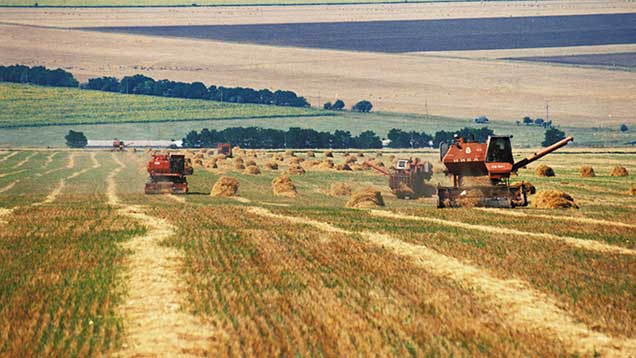Farmland in Russia: Low investment and politics pose challenge
 © Sovfoto / Universal Images Group/REX
© Sovfoto / Universal Images Group/REX As part of a our global farmland guide Farmers Weekly asked Wojtek Behnke of the International Agricultural Investments team at Brown & Co about the farmland market in Russia.
See also: International farmland – Guide to the global land market
 RUSSIA
RUSSIA
Main agricultural products
Cereals, vegetables and dairy. From a production perspective there are huge opportunities to develop broad-scale businesses in the sector
See also: Farmland in Europe – prices and players from east to west
Average farmland values for good-quality arable land
Depending on region, between about £60/acre (in the North and South East) and about £350/acre (in the South)
Average farmland values for grassland
There is essentially no market for grassland in Russia – there is either tilled or untilled land, which is incorporated in the prices above for arable land
Most desirable farm/land type
Large blocks of arable land in fertile condition and with infrastructure. Land from about 12,000-75,000 acres with some crop storage and buildings. Climate varies across the region, so in the South irrigated farms are more sought after, but not so much in the North. Lighter chernozem soils are in high demand
Quality of land
We are talking mostly of western Russia, which is that part between Ukraine and the Ural mountains. This is a vast area of land with a range of soil types and different climatic conditions. Chernozem soils can be very heavy clays or clay loams, rich in mineral content and versatile
Structure of farms
Predominantly corporate farmers or wealthy land-owning individuals. Growing number of medium sized farms as the market developers
Key factors influencing land market
International relations are at rock bottom. The commercial environment is challenging for both international and domestic operators, although some of the more established domestic operators have seen huge short-term gains as a direct result of trade sanctions. Lots of land remains unfarmed due to poor infrastructure and financial support.
Under the current regime, Russia is trying to be self-sufficient in agriculture, which is a huge challenge for such an underinvested sector. Russia is looking east to establish more economic ties with Asia and is having some success. Under the current government there are no signs of a positive relationship with the West for the foreseeable future
Players in the farmland market
Corporate dominance exists largely due to the investment requirements. Local farmers are often small-scale, but larger farms are steadily being formed
Limits on foreign buyers
Under a corporate structure it is possible to own land in Russia. The law is well established in this regard and many organisations have done this successfully
